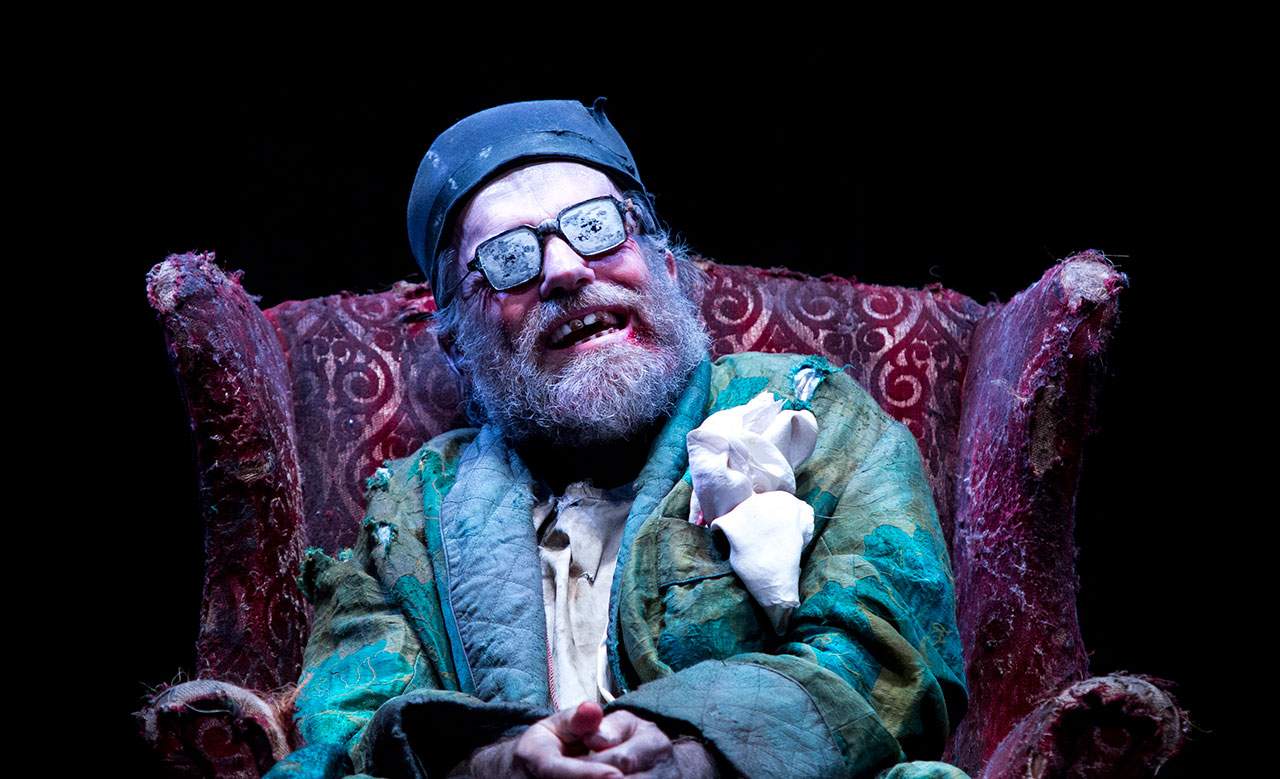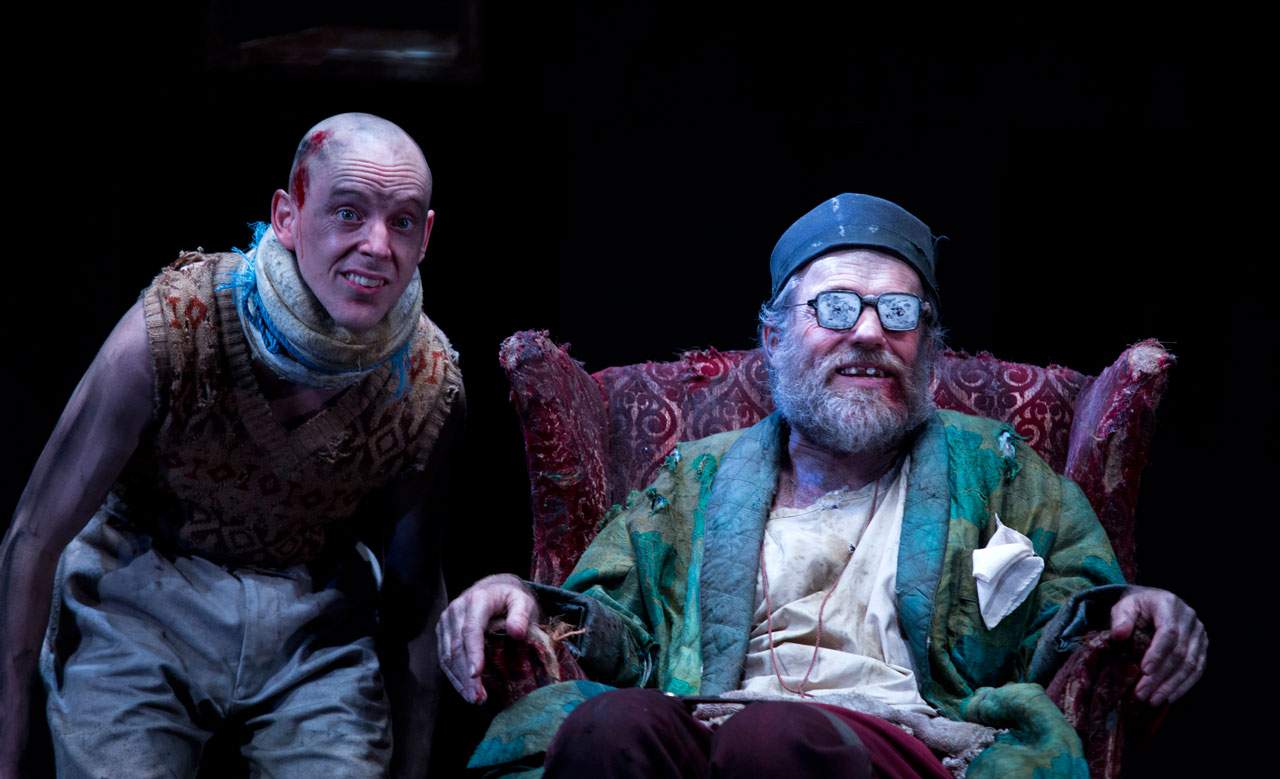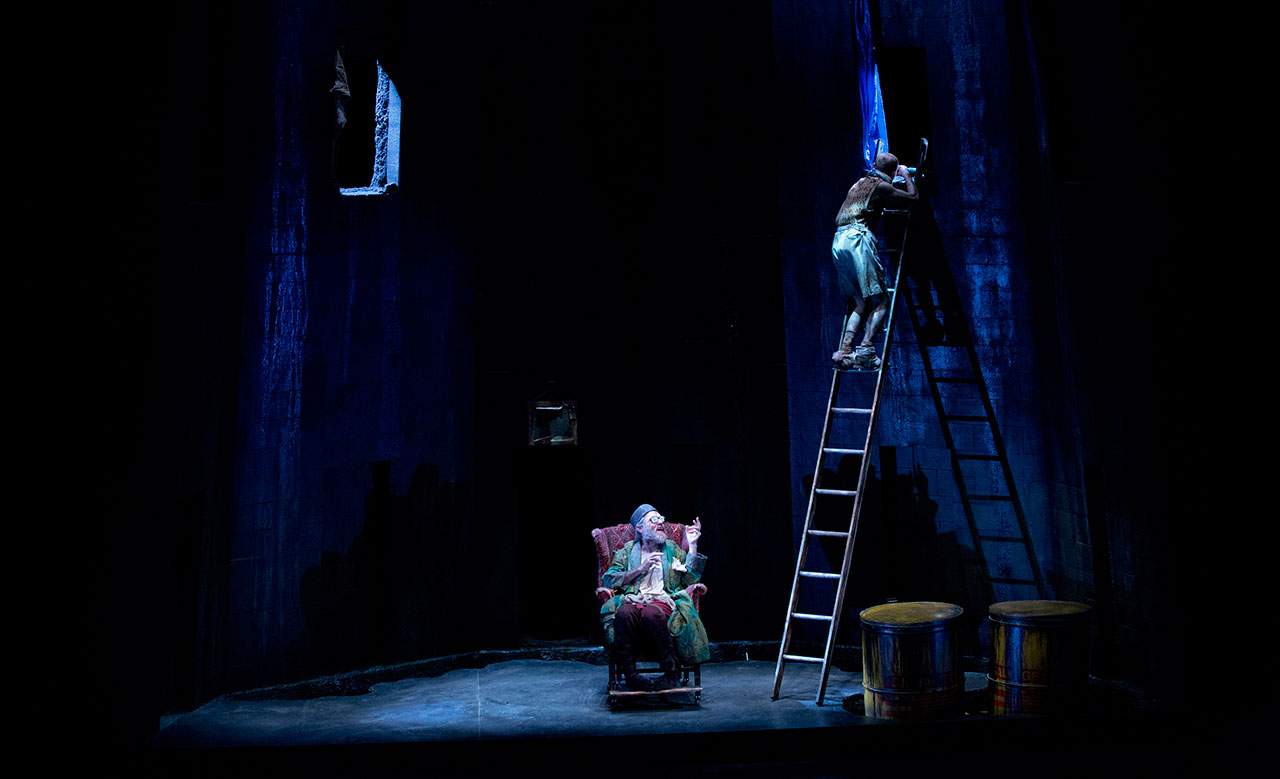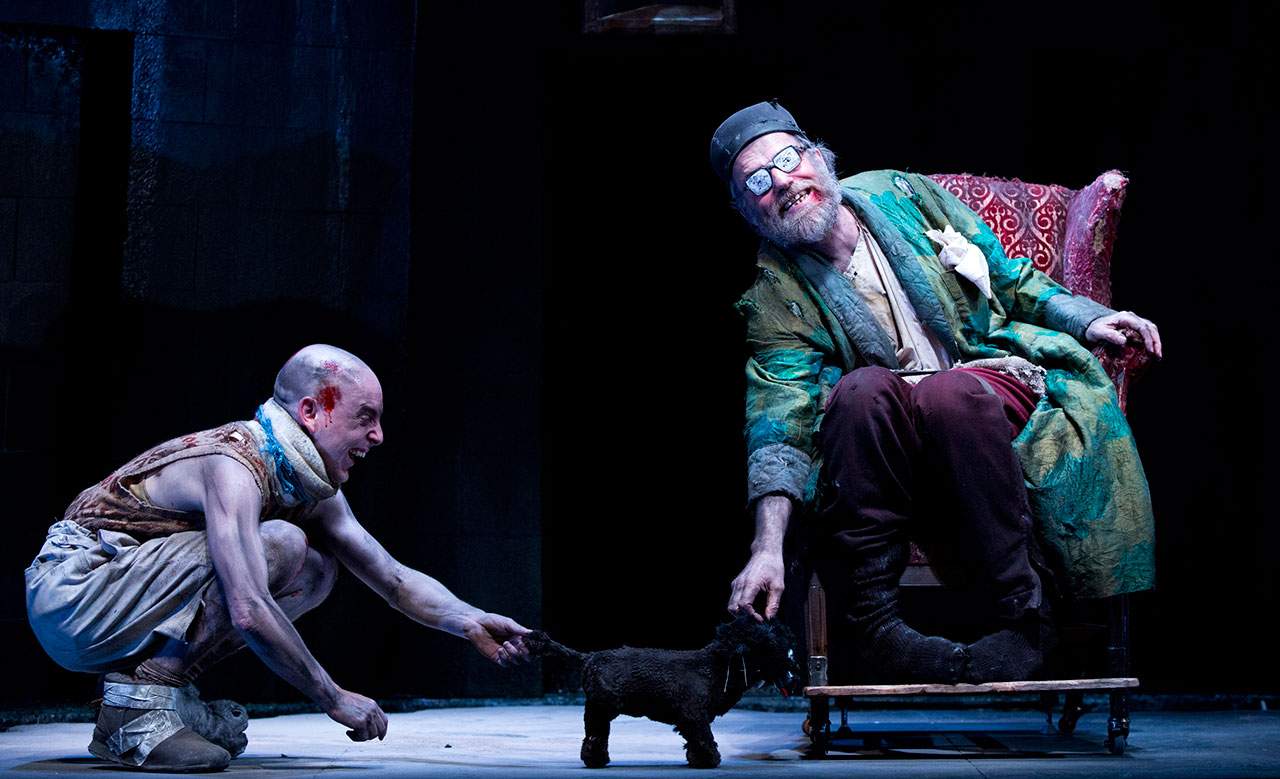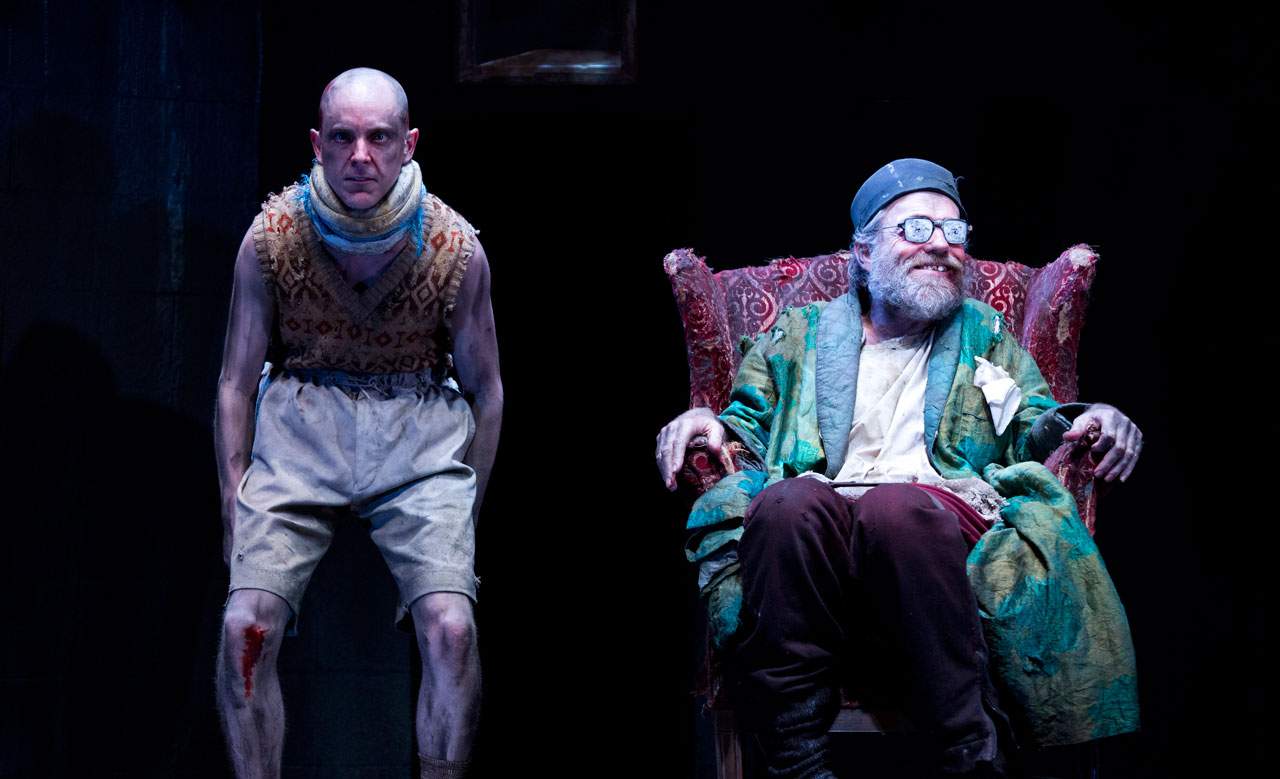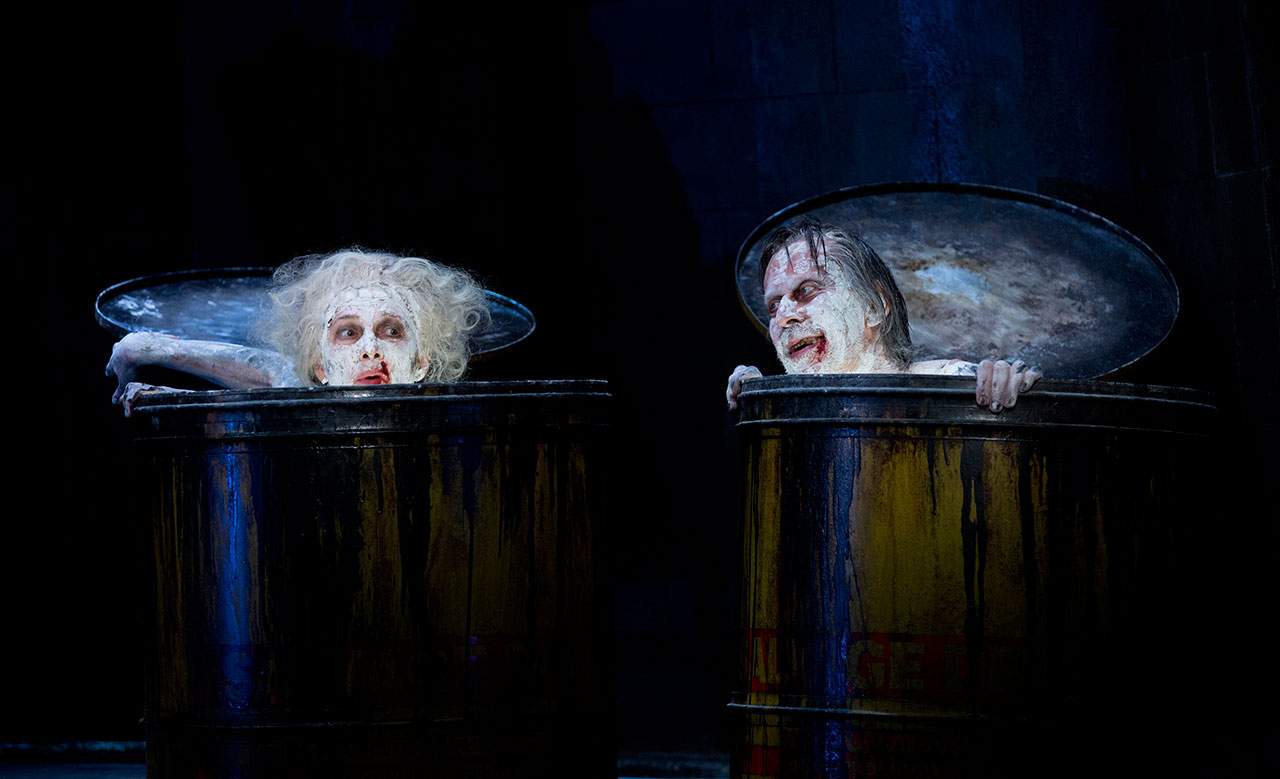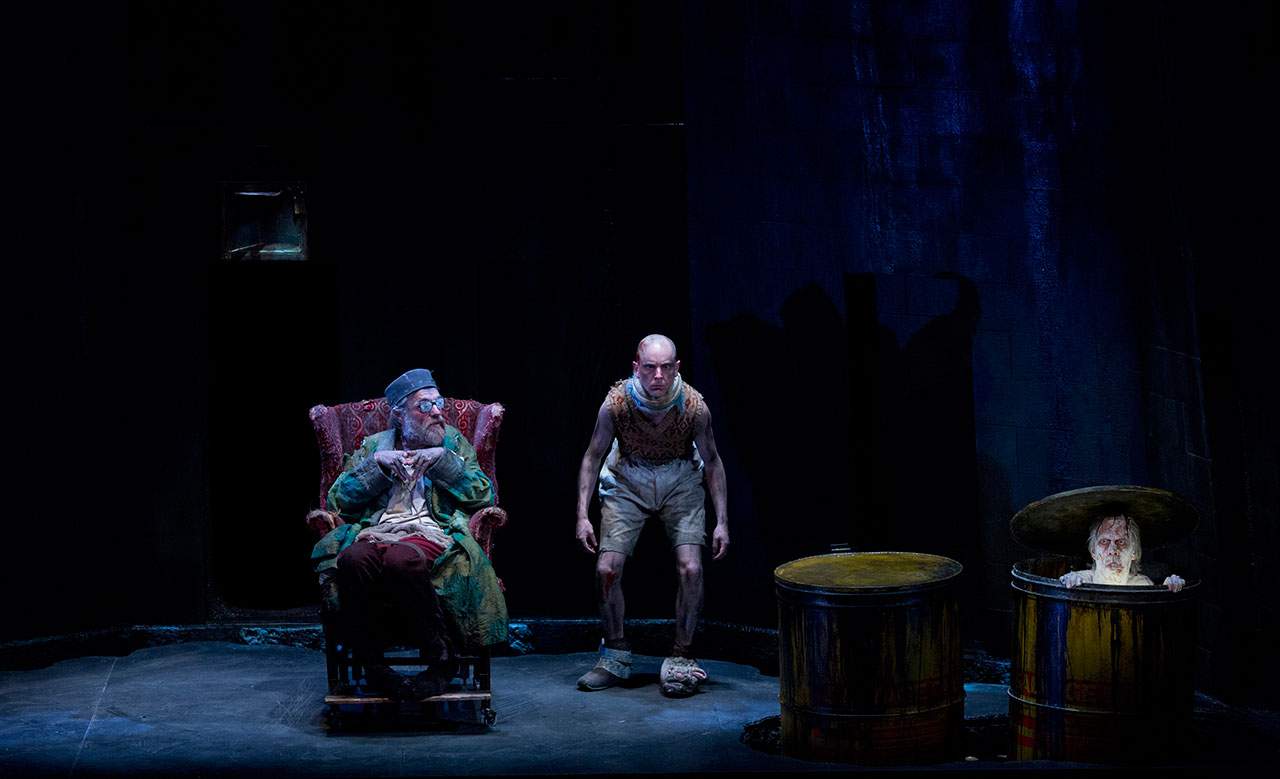Endgame - Sydney Theatre Co
Yes, that's Hugo Weaving, giving a performance of immense vocal and physical prowess while immobile from the shoulders down.
Overview
Andrew Upton’s Endgame is beautiful Beckett. Inasmuch as it invites us to wallow in the great fear and inertia of existence for 110 minutes, till we’re asking (along with main character Hamm), “Is it not time for my pain killer?”
In place of a short synopsis, here’s my spoiler alert: Nothing. Ever. Happens. And therein lies the genius of Theatre of the Absurd’s poster boy, Samuel Beckett. This ‘absurd’ is a curious moniker for Beckett’s works. Yes, he discombobulates theatrical conventions, but he also exposes the inescapable suffering of our world, with stomach-turning realness. Endgame mulls over that incurable condition, life on earth. The question is always, “what’s happening?”, and the answer, “something is taking its course”. In my mind, the true wonder of Endgame is the humour that punctuates the pain. The misery is a given, the moments of light and childish hope are the miracle.
Even if revelling in the cyclical despair of the universe isn’t your thing, see Endgame for the sheer display of vocal and physical prowess of the actors. Hugo Weaving as Hamm is immobile from the shoulders down but brings his character to life with wild acrobatics of the voice and face. It is beautiful to hear a master actor tasting language, as if he has forgotten how words are supposed to work, so syllables surprise and fly out unmeasured. He nails the harshness and fragility of Hamm, his constant contradictions and reneging.
On the other side of this power dynamic is Tom Budge as the begrudgingly faithful Clov. Here, in his Sydney Theatre Company debut, he is wondrous. The precision of his physicality is mesmerising — the stance he assumes when awaiting orders, how he manages daintiness and dexterity atop huge clown feet. He desperately assembles an OCD routine to combat the chaos of his existence, and it’s enlightening to watch him perform his elaborate procedures with grubby flourish, over and over again. Sarah Peirse and Bruce Spence play Nell and Nagg, Hamm's elderly parents, who are literally thrown in the rubbish now they're no longer of use. Hamm refers to them only to curse the very organs that bred him.
“I’ll never understand why I always obey you,” Clov ponders, in just one example of the self-referentiality underpinning Beckett’s script. Endgame pokes fun at the ‘game of theatre’, with its eternal status struggles and fabrications of time and space. At times Weaving assumes the role of the brooding poet, sending up the agony of creative genius. He evaluates his own monologues and frets the passing of time. He sits, in a weathered throne, in a forgotten castle, in the depths of the earth. A tyrant of emptiness; his kingdom an immense void.
Nick Schlieper manages to capture the intrigue of this location-less place with his set design. Are we looking at a cross-section of a castle, or a dungeon? Or are we somewhere more metaphysical? Limbo, the space between? The constant drip also precludes the opportunity for complete silence. It's a space of eternal dissatisfaction and unease.
It is worth going along just to see these wonderful actors present a theatre-changing text. In every corner of this uneventful endgame is a comment on life and society. Beckett's text is quick, captivating and efficient. And at the 'end' he's having the laugh on us. We're accustomed to momentous things happening in the theatre, but in this world, if you're crying, you're still alive. "I'll leave you," Clov again threatens, and we cry for him to do it, so that something can progress. Leaving us free to buy our painkiller at the bar.
